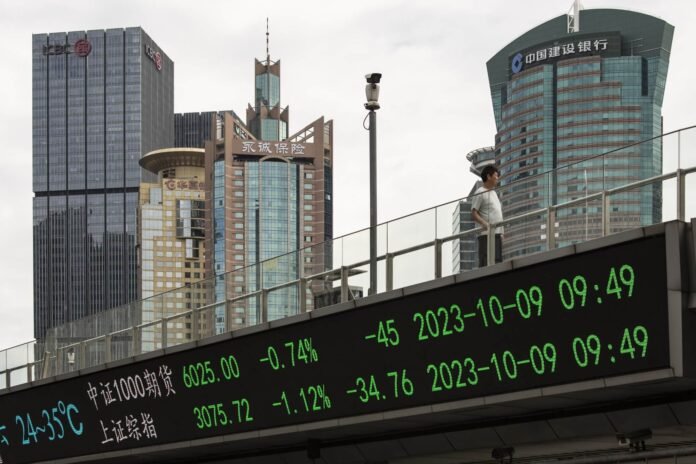Goldman Sachs Group Inc. is undergoing a strategic reassessment of its approach to emerging markets (EM) after facing challenges related to China’s economic performance in 2023. The head of global currency, rates, and emerging-markets strategy at Goldman Sachs, Kamakshya Trivedi, highlighted two key lessons learned from the unexpected downturn in China, reshaping the bank’s outlook on EM.
1. Distinguishing China from Other Emerging Markets: At the start of 2023, Goldman Sachs, like other Wall Street banks, anticipated a robust recovery in China post-pandemic, contributing to a positive outlook for emerging markets globally. However, Chinese stocks experienced a decline of over 15%, contrary to expectations. Trivedi emphasized the need to treat emerging markets excluding China differently, as Chinese assets displayed a lack of correlation with other EM assets on both equity and fixed-income fronts.

2. Resilience of Broader Emerging Markets: Despite facing challenges such as an aggressive hiking cycle by the Federal Reserve, a strong dollar, and a slowing Chinese economy, Trivedi noted the resilience of broader emerging markets. The key factor contributing to this resilience was the proactive and aggressive policy actions taken by central banks in developing countries. Emerging-market central banks implemented early interest rate hikes to address potential inflationary shocks, putting them ahead of developed markets in responding to economic challenges. This policy stance has played a crucial role in supporting the performance of EM assets, even in adverse conditions.
When excluding China from the equation, emerging-market stocks have demonstrated a notable gain of 16% throughout the year. In contrast, the MSCI emerging-market benchmark index, which includes Chinese stocks, registered a more modest increase of 4.4%.
Trivedi acknowledged that the primary disappointment for emerging markets in 2023 was the ongoing deceleration in China’s economic growth. However, he expressed optimism for the future, citing the positive impact of early and decisive policy actions taken by emerging-market central banks. Looking ahead, Goldman Sachs expects positive total returns in EM assets for the upcoming year.
As Goldman Sachs recalibrates its strategy, the lessons learned from China’s challenges underscore the importance of nuanced approaches and a recognition of the distinct dynamics within emerging markets.




